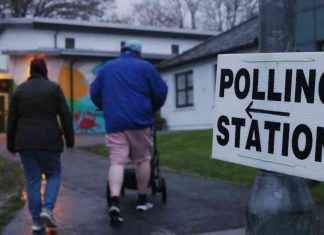When fifth-year math Ph.D. student Paul Lessard first moved into his graduate student office on the University of Colorado’s Boulder campus, he found a cot hidden behind the door.
Lessard, a member of the graduate student advocacy group CU Boulder Committee on Rights and Compensation, soon learned that grad students living in their office was one consequence of the low wages and skyrocketing living expenses he watched weigh on himself and his peers.
“Despite nominal raises every year, I’ve discovered significantly greater financial discomfort every year,” Lessard said Wednesday.
On Friday, during the two-day CU Board of Regents meeting, regents are expected to address a plan to increase graduate student stipends.
The campus is implementing a three-year phase-in of stipend increases prompted by graduate students that have been meeting with administrators for the past year to share their concerns. The first year of the plan would bump up 5.9 percent from the average salary of $19,073 to $20,208. The following two years will amount to an average of $22,763, followed by an assessment to see what else needs to be done.
“Basically, in three years we’ve said, ‘Let’s come back together and see where we are and figure out our path from there,'” said Kelly Fox, senior vice chancellor and chief financial officer. “I wouldn’t call it the end. It’s just not clear what’s next.”
While graduate students are encouraged by the pay increase, many remain concerned about getting by and hope the university doesn’t forget about them.
Lessard, who teaches calculus classes, said he pays $1,400 a month in rent and is paid either $1,600 or $2,000 monthly depending on the semester.
“Until this point, I had no student loan debt,” he said. “Now, I have over $20,000.”
He knows countless graduate students who, like himself, are drained of significantly more than half of their paychecks solely by rent. He also knows graduate students on food stamps, those who have had health-related costs that have sucked their bank accounts dry and some who have become homeless.
“I’m glad the increase is happening, but my main concern is we’ve seen rent increases in Boulder in between 7 and 12 percent annually, and we are now promised a 5.9 percent increase annually in three years,” Lessard said. “If you assume that half or more of your expenses are rent, this is not even guaranteed to keep up.”
He added that graduate students are also expected to pay student fees, which can reach $2,000 a year.
Juan Garcia Oyervides, executive vice president of CU’s United Government of Graduate Students, said graduate students are in an awkward position where they don’t receive the attention that undergraduates do nor the respect that faculty command.
“It’s an undeniable fact that graduate students are in a vulnerable position,” he said. “We’re in this position where we’re employees and we teach, but we’re students, too, and it’s confusing where we stand.”
Graduate students often come to him to vent about their finances on top of the normal demands of working and studying at the university.
“This is why we need a significantly larger raise than this,” Lessard said. “This maybe means we’re treading water instead of sinking.”
Richard Bateman, president of UGGS, is trying to push for alternatives other than increased pay that could still lighten the financial load for burdened grad students.
After talking with the administration, Bateman — a sixth-year atmospheric science graduate student — said he better understands the financial constraints the university works within, such as the predicament of messing with a salary scale that could affect salaries beyond grad students. Instead, he wants to see a focus on providing designated housing for graduate students in the same way that undergraduates are provided residence halls.
“Right now, the housing that exists is antiquated and doesn’t serve the needs of students today and is in drastically short supply,” Bateman said. “There’s a two- to three-year waiting list for a one bedroom in graduate and family housing sections.”
Listening to students’ concerns, Fox said the university is going through a “campus visioning” in which graduate student housing is a priority. The visioning will happen throughout the year, and more information about those discussions will be shared at that time, she said.
Elizabeth Hernandez: 303-473-1106, hernandeze@dailycamera.com or twitter.com/ehernandez
Our editors found this article on this site using Google and regenerated it for our readers.





